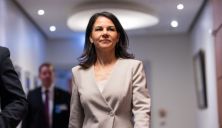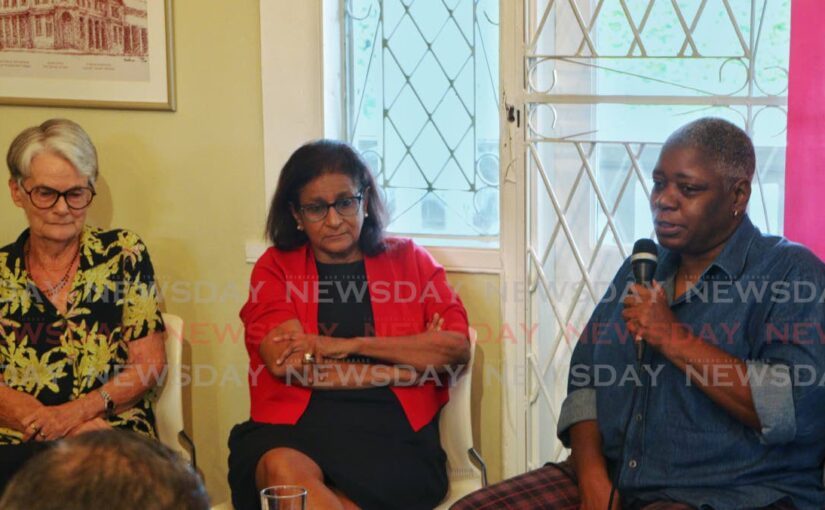By Giorgi Lomsadze (Eurasianet) -- Many Georgians who witnessed the death of a one-party state just over 30 years ago never thought they would...
Vous n'êtes pas connecté
- English
- Français
- عربي
- Español
- Deutsch
- Português
- русский язык
- Català
- Italiano
- Nederlands, Vlaams
- Norsk
- فارسی
- বাংলা
- اردو
- Azərbaycan dili
- Bahasa Indonesia
- Հայերեն
- Ελληνικά
- Bosanski jezik
- українська мова
- Íslenska
- Türkmen, Түркмен
- Türkçe
- Shqip
- Eesti keel
- magyar
- Қазақ тілі
- Kalaallisut ; kalaallit oqaasii
- Lietuvių kalba
- Latviešu valoda
- македонски јазик
- Монгол
- Bahasa Melayu ; بهاس ملايو
- ဗမာစာ
- Slovenščina
- тоҷикӣ ; toğikī ; تاجیکی
- ไทย
- O'zbek ; Ўзбек ; أۇزبېك
- Tiếng Việt
- ភាសាខ្មែរ
- རྫོང་ཁ
- Soomaaliga ; af Soomaali
Rubriques :
 Maroc - EURASIAREVIEW.COM - A la une - 04/Sep 00:20
Maroc - EURASIAREVIEW.COM - A la une - 04/Sep 00:20
The Revolving Door Of Nepali Politics – Analysis
By Anil Sigdel Instability is the norm in Nepali politics. The multiparty democratic system revolves around power-hungry politicians, short-lived, unnatural alliances and high-profile corruption cases. Following the 2022 elections, Nepali Congress, with 89 seats, and the Communist Party of Nepal–Unified Marxist Leninist (CPN–UML), with 78 seats, are the first and the second largest parties respectively in the 275-seat House of Representatives. Former prime minister Puspa Kamal Dahal ‘Prachanda’ previously led a coalition comprised of his party, the Communist Party of Nepal–Marxist Center and CPN–UML. Prachanda, who has served as prime minister for three non-consecutive terms, had maintained his grip on power byswitching sidesin quick succession. But Prachanda began to punch above his weight of 32 seats in the parliament by taking steps that furtherwidened the differencesbetween him, the CPN–UML and the opposition party Nepali Congress. The result was that CMN–UML and Nepali Congress formed acoalition to ousthim. Prachanda left office on 6 July 2024, replaced by CPN–UML leader Khadga Prasad Sharma Oli. Oli has been at the centre of thispolitical intrigue, securing victories on several fronts. Oli succeeded in his vengeance against Prachanda for his betrayals, deprived his former comrade Madhav Nepal from possibly becoming prime minister with Prachanda’s support and thwarted internal power rivalry. On 20 October 2020, during his last prime ministership, Oli unconstitutionally dissolved the parliament to escape internal mutiny led by some senior leaders vying against his consolidation of personal power in the party. As far as the Nepali Congress is concerned, by forming an allegiance with Oli and CPN–UML, Congress leader Sher Bahadur Deuba prevented his party from beingfurther tarnishedby allegations of corruption against high profile members. The same is true for Oli himself. In mid-2024, Nepali Congress leader Gagan Thapa assured Nepalese citizens that his party would continue to play the opposition role until the next elections — this has now turned out to be either a lie or ignorance. The Rastriya Swatantra Party’s (RSP) aggressive anti-corruption campaigns have disrupted the old guards’ — Congress and UML — dominant politics. The RSP is the fourth largest party in the current parliament. It had supported Prachanda’s government and held important ministries, including the powerful Home Ministry. While RSP supporters praised its anti-corruption mobilisation,its leaders, including itsPresident Rabi Lamichhane, have been scrutinised for not abiding by the rule of law either. Given Nepal’s past experiences — a continuallyrotating door of prime ministers, parachuted to power by changing alliances — despite its numerical superiority in the parliament, the new ‘national unity government’ comprised of Nepali Congress and CPN–UML is unlikely to perform any better. Unlike in the past, when the big parties united to achieve larger objectives, such as issuing a new constitution in 2015, there is no such agenda this time. Anyamendments to the constitution, as envisaged by this coalition, are easier said than done. This coalition is just a cover to secure the dominant position of the big parties. Any efforts to reconfigure the federal structure or electoral system, despite its problems, will face huge resistance. In terms of inclusion and more autonomy forfederal provinces, the big parties are always reluctant to decentralise power. On the question ofeconomic policies, some positive changes to fix problems such as inflation and fuel growth are welcome. But this was equally possible under the previous government. In terms of geopolitics, the current instability plays to India’s advantage, who that fears any stable, powerful leadership in Nepal may seal consequential agreements with China. The major cause of instability in Nepal is thedeterioration of moralityin politics. Democracy, with all its imperfections, is the best system for Nepal and the answers to the problems of democracy must be more democracy. Unfortunately, that is not happening. Oli alone leads the CPN–UML and Prachanda heads the Maoist Center. Nepali Congress’s Sher Bahadur Deuba is apparently hoping to secure a sixth term as prime minister as per his understanding with Oli. These party leaders hold meetings and make decisions about the country that party rank and files or their parliamentary members have no idea about, let alone the ordinary citizens. All that matters in these parties is extreme loyalty to their leaders. Nepali Congress and CPN–UML came to an agreement that Oli would serve as prime minister for two years before handing over to Deuba. These two party leaders went to thePresidential office at midnightto announce this backdoor agreement. There is an implicit consensus among parties and leaders that given Nepal’s parliamentary equation, a full five-year election cycle is not possible. Parties are balancing each other out by encircling others when they are in power and siding with parties on the opposite side of the political spectrum when coming to power. Some regional leaders have become ministers for a record number of times. Ideological polarisation is not prominent in Nepal’s parliament — rather the ultimate objective of politicians is to hold ministerial positions and enjoy access to state resources. New layers of governments in thefederal provinceshave added more challenges and opportunities. Political fragmentation and power sharing will continue to dominate the country’s politics. Stability, with an effective government, seems a far cry for Nepal. About the author: Anil Sigdel is founder of Nepal Matters for America, Washington DC. Source: This article was published by East Asia Forum
Articles similaires
Laos’ ASEAN Chairmanship Propels Foreign Minister To PM Contender – Analysis
By David Hutt In the coming months, Laos’ ruling Communist Party will begin informal discussions about the country's future leadership, which...
France, protests against the appointment of a new prime minister
Thousands of French protested on Saturday against President Emmanuel Macron's decision to appoint centre-right politician Michel Barnier as his new...
Baerbock scolds Scholz’s party for shrinking aid to Ukraine
German Foreign Minister Annalena Baerbock, who is one of the leaders of the Greens, reprimanded the Social Democrats from the federal state of...
Baerbock scolds Scholz’s party for shrinking aid to Ukraine
German Foreign Minister Annalena Baerbock, who is one of the leaders of the Greens, reprimanded the Social Democrats from the federal state of...
Senator Maharaj: People losing hope for change
FORMER journalist and Independent Senator Sunity Maharaj says constitutional reform is the beginning of a means to begin to anchor a culture of...
Nepal to soon print banknotes with controversial map: Report
Nepal's central bank is proceeding with plans to print new banknotes featuring a revised map that includes disputed territories with India, such as...
How Will Penang DAP Fare Without Chow? – Analysis
All eyes are on Penang’s Democratic Action Party (DAP) as it prepares for its state elections on 22 September, where the next state DAP chief will...
Macron’s Barnier Gamble May Have A Hefty Personal Cost – OpEd
By Zaid M. Belbagi The appointment of Michel Barnier as the prime minister of France last week came after a prolonged political deadlock, with...
Jammu And Kashmir Goes To The Polls: First Assembly Election In 10 Years – Analysis
By Ronojoy Sen On 16 August 2024, India’s Election Commission announced the dates for Assembly polls in Jammu and Kashmir (J&K). The three-phase...
Les derniers communiqués
-
Adobe Brings Conversational AI to Trillions of PDFs with the New AI Assistant in Reader and Acrobat
Adobe - 21/02/2024
-
Laura Frigenti takes the Helm as Chief Executive Officer of the Global Partnership for Education
Global Partnership for Education - 05/12/2022

